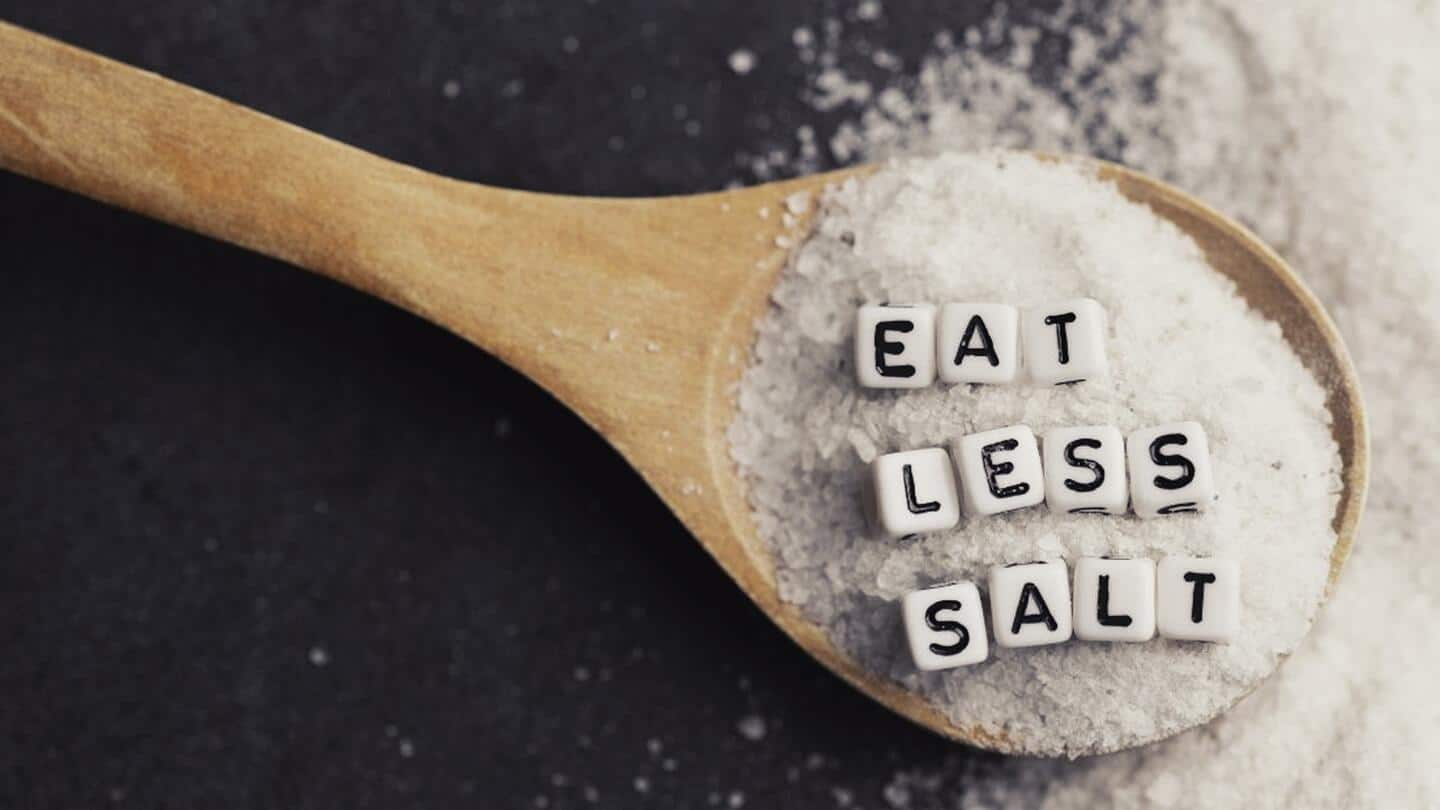
5 reasons why a low-salt diet is good for health
What's the story
High sodium consumption can lead to many health problems in us.
However, most people consume more salt than the recommended maximum level of intake.
According to the WHO, an estimated 2.5 million deaths can be prevented each year if global salt consumption were reduced to the recommended level.
Let's have a look at the varied benefits of having food with low salt concentration.
Information
Recommendations by WHO for salt reduction
The WHO recommends that adults consume less than 5 grams or just under a teaspoon of salt per day. For children aged between two to 15, the WHO recommends even lesser salt intake than adults. This may vary based on the child's energy requirements.
Good for your heart
Keeps blood pressure in check
The body needs only small amounts of sodium to function, but most Indians consume it in heavy amounts.
Sodium intake increases blood pressure, the more salt you consume, the higher will your blood pressure be.
This poses a major risk factor for heart disease and stroke.
A low-salt diet helps to regulate blood pressure and also keeps your heart healthy.
Healthy bones
Improves bone health
Since calcium is important for bone strength, having food with high concentrations of salt can lead to bone weakening and therefore osteoporosis.
This is because we lose calcium during urination and the amount of this loss is directly proportional to the amount of sodium in our bodies.
When we eat a high-salt diet, we lose more calcium through urination.
Cancer-aversive
May help decrease cancer risk
High-salt diets have been associated with certain types of cancers, including that of the stomach.
Many research studies have shown that salt damages the mucosal lining of the stomach and can cause lesions, which if left untreated, can lead to cancer.
A diet low in salt and rich in fruits and vegetables has been linked to a lowered risk of cancer.
Abdominal distension
Reduces chances of bloating
The less salt you consume, the better it is for your digestive system.
The exact reason why salt causes bloating has still not been determined. However, the sodium present in salt, causing water retention can be attributed to it.
This not only causes bloating in the stomach but also in the face.
If you experience bloating often, consider cutting down on your salt intake.
Brain development
Enhances brain health
Studies have shown that too much salt reduces the blood flow to the brain and leads to cognitive impairment.
What happens here is that the arteries that carry blood to the brain get blocked or constricted. This leads to a decrease in blood supply to the brain.
High intakes of salt can lead to dehydration, which can trigger brain fog and mild confusion, too.